31. Jan 2017
36 publicly traded companies with economic activities in or around settlements, checkpoints, the separation wall or involved in extraction of natural resources in the occupied Palestinian territories - with investments from the five largest European pension funds.
1. Africa Israel Properties (ISRAEL)

Africa Israel Properties is an Israel-based company that coordinates the income-generating real estate activities of AFI Group, Africa Israel Investment, in Israel and overseas. A majority of Africa Israel Properties’ stock (55%) is owned by AFI Group, which is one of the largest investment groups in Israel and is involved in several construction projects in the West Bank through its subsidiary Danya Cebus. The group is controlled by Lev Leviev and owns hundreds of companies in Israel and around the world. Due to both Africa Israel Investments and Danya Cebus link to problematic activities in the occupied Palestinian territories, several investors have excluded them, including: Norway Government Pension Fund Global (NO), Kommunal Landspensjonskasse (NO) PenSam (DK), Danske Bank (DK). Danwatch contacted Africa Israel Properties through AFI, but did not receive an answer. In 2013, AFI said that it did not acknowledge the accusations connected to its subsidiary Danya Cebus because it does not consider the settlement of Gilo in East Jerusalem to be a settlement.
2. Alon Blue Square Israel Ltd. (ISRAEL)

Alon Blue Square Group is one of the largest retail and energy groups in Israel and operates several branches in the occupied West Bank through its subsidiary retail chain Blue Square.
3. Alstom (FRANCE)
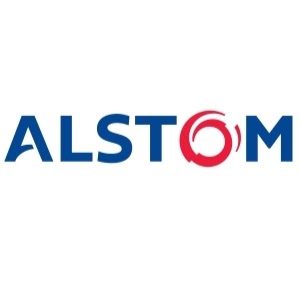
Alstom is a French energy and transportation company involved in the building and maintenance of the Jerusalem Light Rail. The Light Rail is built partially on occupied Palestinian territory and connects illegal settlements to West Jerusalem. Alstom owns 80 percent of the EPC-consortium as well as 100 percent of Citadis Israel, which in 2002 signed a 28-year maintenance contract for the Jerusalem Light Rail. In 2015, Alstom tendered a €630 million bid to Israel Railways for the electrification of 420 kilometres of railroad tracks, including the new, high-speed A1 line, which cuts into the occupied West Bank. Alstom did not win this bid. Alstom confirmed these activities in an email to Danwatch November 2016.
Excluded by: Kommunal Landspensjonskasse (NO)
4. Altice (NETHERLANDS)
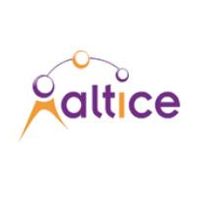
Altice is a multinational telecommunications company headquartered in Amsterdam, the Netherlands. Through its ownership of Hot Telecommunications Systems and Hot Mobile, Altice is responsible for installing 121 antennas in the occupied West Bank as well as providing telecommunications services such as cable TV and telephony to illegal settlements. Additionally, Hot Mobile pays licensing fees to Israeli settlements, while Hot Telecommunications Systems operates customer service offices in the settlements of Ma’ale Adumim and Pisgat Ze’ev. Danwatch contacted Altice, but did not receive a reply. Altice has made no prior public statements regarding possible negative effects on human rights associated with its activities in the occupied Palestinian territories.
5. Azrieli Group (ISRAEL)
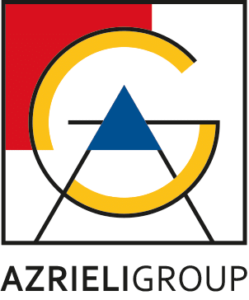
Azrieli Group is an Israeli real estate and holding company that is the sole owner of a number of the largest real estate projects in Israel as well as 15 large shopping malls. Azrieli Group owns 4.6 percent of Leumi Bank (see profile) as well as 100 percent of Granite HaCarmel, which owns Sonol, a company that runs gas stations and stores in illegal Israeli settlements in the occupied West Bank, including Ariel, Ma’ale Efraim, Ma’ale Adumim, Kedumim, Eli, Kfar Adumim, and Almo, as well as in occupied East Jerusalem in Ramot Alon and Sheikh Jarrah. Danwatch contacted the Azrieli Group, but did not receive a reply. The Azrieli Group has made no prior public statements regarding possible negative effects on human rights associated with its activities in the occupied Palestinian territories.
6. Bank Hapoalim (ISRAEL)

One of Israel’s largest banks, and deeply involved in financing, developing and constructing illegal settlements in the occupied West Bank. Hapoalim has bank branches in several settlements and provides private loans and mortgages to settlers, businesses and settler authorities. Hapoalim also funds the Jerusalem Light Rail, which is built partially on occupied Palestinian territory and connects illegal settlements to West Jerusalem. The Association of Banks in Israel, a trade organisation, confirms to Danwatch that Israeli banks have a wide range of different activities in the occupied Palestinian territories, since the banks do not differentiate between Israel and the occupied Palestinian territories. Danwatch contacted Bank Hapoalim, but did not receive an answer.
Read more in our investigation into Hapoalim and Israeli banks: Business on Occupied Territory
Excluded by: Pensioenfonds Zorg en Welzijn (PFZW) (NE)
7. Bank Leumi (ISRAEL)

One of Israel’s biggest banks, and deeply involved in financing, developing and constructing illegal settlements in the occupied West Bank. Leumi has bank branches in a number of illegal settlements and provides private loans and mortgages to settlers, businesses and settler authorities. The Azrieli Group (see profile) owns 4.6 percent of Leumi. The Association of Banks in Israel, a trade organisation, confirms to Danwatch that Israeli banks have a wide range of different activities in the occupied Palestinian territories, since the banks do not differentiate between Israel and the occupied Palestinian territories.
Read more in our investigation into Israeli banks: Business on Occupied Territory
Excluded by: Pensioenfonds Zorg en Welzijn (PFZW) (NE)
8. Bezeq (ISRAEL)
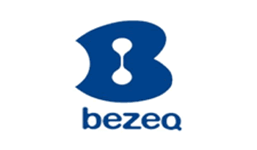
Bezeq is Israel’s largest telecommunications company and has developed an extensive telecommunications infrastructure in the occupied West Bank to provide services to illegal settlements. Bezeq pays licensing fees in order to install antennas in many illegal settlements – including so-called outposts, which are illegal even under Israeli law. B Communications, a subsidiary of Internet Gold, owns 26.34 percent of Bezeq. In 2011, Bezeq did not reply to requests for comment from the Business and Human Rights Resource Centre. Danwatch contacted Bezeq, but did not receive an answer.
9. Caterpillar Inc. (USA)
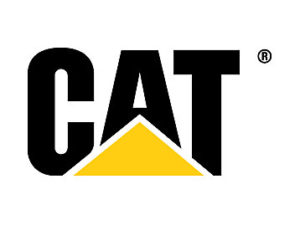
Caterpillar Inc. is an American manufacturer of construction machinery that has long been in the spotlight as a result of its sales to the Israeli army. Back in 2004 Human Rights Watch recommended that Caterpillar halt the sale of machinery to the Israeli occupying power, since the company’s bulldozers are “the primary weapon to raze Palestinian homes, destroy agriculture and shred roads in violation of the laws of war.” Caterpillar machines have also been used in the construction of the illegal separation wall, illegal settlements, settlement infrastructure and other barriers that restrict Palestinians’ freedom of movement. In a 2012 report submitted to the UN General Assembly by the Special Rapporteur on the situation of human rights in the Palestinian territories, Richard Falk, Caterpillar’s business operations are mentioned among other highlighted cases. In January 2015 UNOCHA oPT video documented a house demolition in Hebron where Caterpillar equipment was used. When the Business and Human Rights Resource Centre contacted Caterpillar in 2011 to verify similar accusations, the company stated: “Caterpillar cannot monitor the use of every piece of its equipment around the world. However, we recognize the responsibility companies have to encourage the constructive use of their products.” Danwatch contacted Caterpillar, but did not receive an answer.
10. Cellcom (ISRAEL)
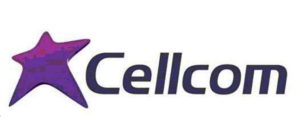
As one of Israel’s largest telecommunications companies, Cellcom has built an extensive telecommunications infrastructure in the occupied West Bank to provide services to illegal settlements. Cellcom also operates service centres in the settlements of Ariel, Modi’in Illit and Beitar Illit. Cellcom has installed 241 antennas and other telecommunications equipment in the occupied West Bank and the occupied Golan Heights. Furthermore, the company pays licensing fees to a number of illegal settlements to install antennas, including to so-called outposts, small settlements that are illegal even under Israeli law. In 2015, the Business and Human Rights Resource Centre contacted Cellcom, but the company chose not to reply to the accusations. Danwatch also contacted Cellcom, but received no reply.
11. Cemex (MEXICO)
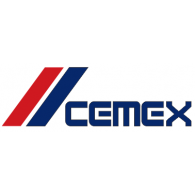
The Mexican cement company Cemex, through its subsidiary Readymix, owns and operates three cement factories in industrial zones in Atarot, Mishor Adumim and Mevo Horon on occupied Palestinian land, according to its own website. Readymix has supplied cement to a number of illegal construction projects, such as the illegal separation wall, settlements and checkpoints, which restrict Palestinians’ freedom of movement. In a 2012 report submitted to the UN General Assembly by the Special Rapporteur on the situation of human rights in the Palestinian territories, Richard Falk, Cemex’ business operations are mentioned among other highlighted cases. Cemex owned 50 percent of the Yatir quarry in the occupied West Bank for many years, but in September 2015 the company announced that it had sold its share to Kfar Giladi Quarries and denied any links to the illegal settlements. In August 2016, Cemex put Readymix up for sale. Cemex has on several occasions commented on the critique regarding its link to activities on occupied Palestinian territory. Cemex insists that settlements that are approved by Israel are not illegal, which is in direct contradiction of international law. On a visit in October 2016, Danwatch found activity at the Readymix sites in Atarot and Mishor Adumim.
Excluded by: Nordea Bank (DK), Kommunal Landspensjonskasse (NO)
12. CNH Industrial (ITALY/UK)
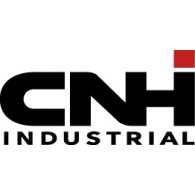
CNH Industrial is a multinational company that produces construction machinery and vehicles. Its machinery has been used in the construction of illegal settlements, infrastructure, industrial zones and the illegal separation wall. Furthermore, CNH machinery has been used to demolish Palestinian homes in the villages of Khirbet M’fakara, Susya and Bir al-‘Id in the occupied West Bank. CNH EX355 excavators were used during the construction of the illegal Israeli outpost Leshem. In 2014, the use of CNH machinery was documented in the construction of the separation wall in the Palestinian villages of Bidu, Bil’in and Ni’lin. CNH also owns the brand Iveco, which has also been used in the demolition of Palestinian houses. Danwatch contacted CNH, but received no answer. CNH has made no prior public statements regarding possible negative effects on human rights associated with its activities in the occupied Palestinian territories.
13. Delek Group (ISRAEL)
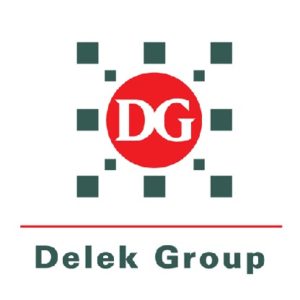
Delek Group and its subsidiaries market and distribute fuel and oil. According to the company’s own website, it operates gas stations, the Menta chain of stores, and its subsidiary Joe Gourmet Coffee in several settlements in the occupied West Bank. Delek Group also owns 52 percent of the financial and insurance group Phoenix Holdings, a major shareholder in Gilat Satellite Networks, which has erected antennas at the Azzun Atma, Beit Iba and Anata checkpoints as well as at the Shu’afat refugee camp in the occupied West Bank. Danwatch contacted Delek group, and they replied briefly with the statement, “Delek Group acts in accordance with the law and rejects the allegations”.
14. Electra Ltd (ISRAEL)

Electra Ltd. is a conglomerate of Israeli and international companies with a focus on electromechanical systems, property development and infrastructure. Through its subsidiaries, Electra Ltd. is involved in several projects in the occupied Palestinian territories. Katzenstein Adler, for instance, operates a 5,000 m2 factory in the Barkan industrial zone in the occupied West Bank. Electra Construction has built 141 homes in the settlement of Har Homa in East Jerusalem and 52 homes in the settlement of Ma’ale Adumim. Danwatch contacted Electra, Ltd., but received no reply. Electra, Ltd. has made no prior public statements regarding possible negative effects on human rights associated with its activities in the occupied Palestinian territories.
15. Expedia Inc. (US)
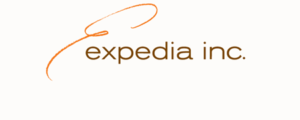
Expedia Inc. is an online travel agency with offices in more than 70 countries. Expedia owns Hotels.com, which offers hotel rooms in illegal settlements in the occupied West Bank, such as Almog Kibbutz Hotel and Kalia Kibbutz Holiday Village at the Dead Sea. Danwatch contacted Expedia, Inc., but received no reply. Expedia, Inc. has made no prior public statements regarding possible negative effects on human rights associated with its activities in the occupied Palestinian territories.
16. First International Bank of Israel (ISRAEL)

First International Bank of Israel Ltd. (FIBI) is a major Israeli commercial bank that is deeply involved in the development of illegal settlements in the occupied West Bank. FIBI is both a financial guarantor and provider of loans to illegal settlements. Through its subsidiary Bank Otsar HaHayal, the bank provides loans to local settlement authorities and to Israeli businesses operating in occupied territory. Additionally, Bank Otsar HaHayal operates a branch in the illegal settlement of Ariel. Another subsidiary, Bank Massad, manages the education funds of the illegal settlement of Efrat. A third subsidiary, PAGI Bank, operates branches in the settlements of Beitar Illit and Modi’in Illit. In 2015, FIBI merged PAGI Bank with the First International Bank. The Association of Banks in Israel, a trade organisation, confirms to Danwatch that Israeli banks have a wide range of different activities in the occupied Palestinian territories, since the banks do not differentiate between Israel and the occupied Palestinian territories. Danwatch contacted FIBI, but did not receive an answer.
Read more in our investigation into Israeli banks: Business on Occupied Territory
Excluded by: Pensioenfonds Zorg en Welzijn (PFZW) (NE)
17. G4S plc (UK)

G4S plc is the world’s largest security company, specialising in providing security and related services. G4S Israel, a subsidiary of G4S plc, supplies security technology to checkpoints, settlements and Israeli prisons that hold Palestinian political prisoners in violation of international law. In a 2012 report submitted to the UN General Assembly by the Special Rapporteur on the situation of human rights in the Palestinian territories, Richard Falk, G4S’ business operations are mentioned among other highlighted cases. G4S confirmed these activities in a response to Danwatch November 2016. In December 2016, G4S announced that it had sold G4S Israel to FIMI Opportunity Funds, an Israeli investment company. The sale is expected to be confirmed within 3 months. G4S will retain a small ownership stake in a police academy in collaboration with FIMI and Shikun & Binui, Israel’s leading infrastructure and real estate group, but will otherwise have no other presence in Israel. Due to Shikun & Binui’s link to activities in the illegal settlements, the Norway Government Pension Fund Global excluded Shikun & Binui in 2012.
18. General Mills, Inc. (US)
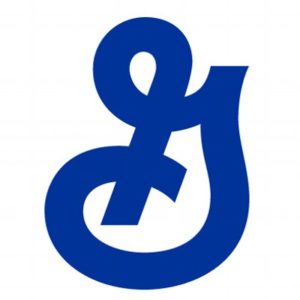
The American food giant General Mills’ products are produced by the Israeli company Shalgal (Food) Ltd. in its factory in the illegal industrial zone Atarot in the occupied West Bank. Shalgal (Food) Ltd. confirms these activities in a conversation with Danwatch.
19. Gilat Satellite Networks (ISRAEL)

Gilat Satellite Networks provides satellite communication products and solutions. Delek Group (see profile) is a shareholder of Gilat Satellite Networks, which has installed antennas at Azzun Atma, Beit Iba and Anata checkpoints as well as at Shu’afat refugee camp in the occupied West Bank. Gilat Satellite Networks has made no prior public statements regarding possible negative effects on human rights associated with its activities in the occupied Palestinian territories.
20. HeidelbergCement Group (GERMANY)

HeidelbergCement is a multinational cement company that owns the Israeli firm Hanson Israel. Hanson Israel has four factories in illegal settlements in the occupied West Bank: concrete plants in Modi’in Illit and Atarot, as well as both an asphalt plant and a quarry south of Elkana, where natural resources are extracted for Israeli use. As a result of Heidelberg’s activities in the occupied territories, it pays taxes to, among others, the Samaria Regional Council, which services 25 illegal settlements. Danwatch contacted HeidelbergCement, but received no reply. At the time that PFA excluded HeidelbergCement because of its activities in the West Bank, the company confirmed its involvement, writing that Palestinians also benefit from its activities in the occupied territories.
Excluded by: PFA Pension (DK), PFA Asset (DK), PenSam (DK), Kommunal Landspensjonskasse (NO)
21. Hertz Global Holdings, Inc. (USA)
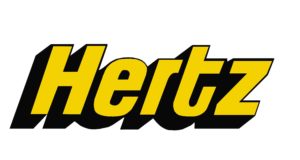
Through its ownership of Thrifty Car Rental, Hertz is connected to the Israeli car rental company Albar, which has a branch in the illegal settlement of Modi’in Illit Danwatch contacted Hertz, but received no reply. Hertz has made no prior public statements regarding possible negative effects on human rights associated with its activities in the occupied Palestinian territories.
22. Hyundai Heavy Industries (SOUTH KOREA)
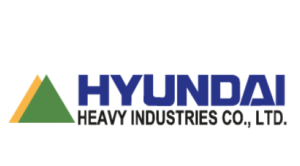
Korean firm Hyundai is the world’s largest shipbuilder and produces construction machinery imported by Israeli EFCO Equipment to the Israeli market. Hyundai excavators have been used to demolish Palestinian homes in Beit Hanina, Silwan, Tsur Baher, Issawiya and At-Tur in East Jerusalem, and in Beit Jala, Jawaya and Derath in the West Bank. In 2011, Hyundai was confronted with these illegal activities, but chose not to respond. In November 2016, the use of Hyundai equipment was documented in home demolition in Wadi al-Joz and Al-Issawiyeh in occupied East Jerusalem. Danwatch contacted Hyundai, but received no reply.
23. Israel Discount Bank (ISRAEL)
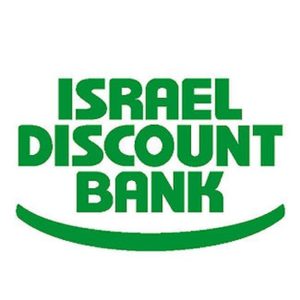
Israel Discount Bank (IDB) is one of Israel’s biggest banks, and is deeply involved in financing, developing and constructing illegal settlements in the occupied West Bank. IDB is both a financial guarantor and provider of loans for construction projects in illegal settlements. Additionally, IDB has bank branches in several settlements and provides private mortgage loans to settlers, businesses and settler authorities. The Association of Banks in Israel, a trade organisation, confirms to Danwatch that Israeli banks have a wide range of different activities in the occupied Palestinian territories, since the banks do not differentiate between Israel and the occupied Palestinian territories. Danwatch contacted IDB, but did not receive an answer.
Read more in our investigation into Israeli banks: Business on Occupied Territory
Excluded by: Pensioenfonds Zorg en Welzijn (PFZW) (NE)
24. Jerusalem Economy ltd. (ISRAEL)

Jerusalem Economy Ltd. (Jerusalem Economic Corporation) is an Israeli real estate company that owns and leases commercial and industrial spaces across the occupied West Bank. Its properties include more than 58,000 square meters of industrial space in the industrial zone Mishor Adumim, 74,000 square meters in Atarot, as well as several other locations in the illegal settlements of Ma’ale Efraim, Kiryat Arba, and Karnei Shomron. The company is also a major shareholder in Industrial Buildings Corporation, which owns and rents industrial and commercial spaces in numerous settlements in the occupied West Bank. Jerusalem Economic Corporation is part of The Fishman Group, one of Israel’s largest private investment groups.
Excluded by: Luxembourg’s national pension fund
25. Mizrahi-Tefahot Bank (ISRAEL)
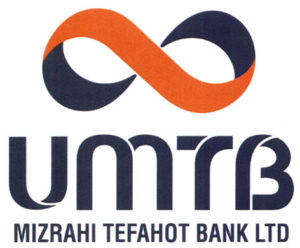
One of Israel’s largest banks, Mizrahi Tefahot is deeply involved in the financing, development and construction of illegal settlements in the occupied West Bank, and has bank branches through its subsidiaries in a number of illegal settlements that offer private loans and mortgages to settlers, businesses and settler authorities. The Association of Banks in Israel, a trade organisation, confirms to Danwatch that Israeli banks have a wide range of different activities in the occupied Palestinian territories, since the banks do not differentiate between Israel and the occupied Palestinian territories. Danwatch contacted Mizrahi-Tefahot, but did not receive an answer.
Read more in our investigation into Israeli banks: Business on Occupied Territory
Excluded by: Pensioenfonds Zorg en Welzijn (PFZW) (NE)
26. Motorola Solutions Inc. (USA)

Motorola Solutions Inc. is an American company specialising in security, mobile computers, and infrastructure for wireless communication networks. Motorola Solutions’ Israeli subsidiary, Motorola Solutions Israel was the company’s first subsidiary outside of the US. In a 2012 report submitted to the UN General Assembly by the Special Rapporteur on the situation of human rights in the Palestinian territories, Richard Falk, Motorola’s business operations are mentioned among other highlighted cases. Motorola Solutions Israel develops and delivers advanced communication and security services to settlements, as well as to state and private security agencies in Israel and worldwide. These include a virtual fence called MotoEagle, which the company has installed and maintained in 47 illegal settlements as well as along the illegal separation wall for more than ten years. The system is also in use along the wall around Gaza and on military bases. For this reason, the Danish investor Nykredit Invest decided in 2016 to exclude Motorola from its portfolio. Danwatch contacted Motorola Solutions, but the company responded that it did not wish to comment.
Excluded by: Nykredit Invest (DK), PenSam (DK)
27. OSI Systems, Ltd. (USA)
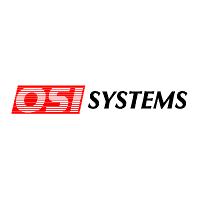
OSI Systems is the American owner of Rapiscan Systems, which delivers security scanning equipment in cooperation with G4S Israel for Israeli military checkpoints in the occupied territories in Bethlehem, Qalandiya and East Jerusalem. Danwatch contacted OSI Systems, but received no reply. OSI Systems has made no prior public statements regarding possible negative effects on human rights associated with its activities in the occupied Palestinian territories.
28. Partner Communications Services Inc. (ISRAEL)
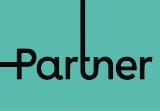
Partner Communications Services, Inc. is an Israeli provider of telecommunication and internet services with more than 208 antennas and telecommunication infrastructure facilities in the occupied West Bank and the Golan Heights. Partner has paid licensing fees to illegal Israeli settlements, including outposts, which are illegal even under Israeli law. Additionally, Partner operates a sales and customer service centre in the illegal settlement Ariel in the occupied West Bank. Since 1997, Partner has had a brand partnership with the French telecom Orange. In February 2016, Orange severed its partnership because of the company’s activities in the occupied Palestinian territories. Danwatch contacted Partner, but received no reply.
29. PayPal (USA)
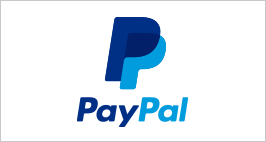
PayPal is an American provider of online payment and money transfers. Via its cooperation with Israeli banks, PayPal offers its services to Israeli citizens in illegal settlements, but not to Palestinians in the West Bank. In an October 2016 statement Paypal confirmed this but did not offer any comments on possible negative effects on human rights. Danwatch contacted PayPal, but received no reply.
30. Paz Oil Company Ltd. (ISRAEL)

Paz Oil is Israel’s biggest oil company, with petrol stations in a large number of illegal settlements, such as Ma’ale Adumim, Kiryat Arba, Pisgat Ze’ev, Gilo, Karnei Shomron and Ofra.Through its subsidiary PazGas, Paz Oil supplies gas to houses in the illegal settlement Ma’ale Adumim and the outpost Havat Maon. Danwatch contacted Paz Oil, but received no reply. Paz Oil has made no prior public statements regarding possible negative effects on human rights associated with its activities in the occupied Palestinian territories.
31. Phoenix Holdings (ISRAEL)
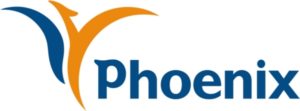
Phoenix Holdings is one of Israel’s largest financial and insurance groups. Phoenix Holdings is a major shareholder of Gilat Satellite Networks (see profile), which has erected antennas at Azzun Atma, Beit Iba and Anata checkpoints and at Shu’afat refugee camp in the occupied West Bank. Delek Group (see profile) owns 52 percent of Phoenix. Danwatch contacted Phoenix Holdings, but received no reply. Phoenix Holdings has made no prior public statements regarding possible negative effects on human rights associated with its activities in the occupied Palestinian territories.
32. Rami Levy Chain Stores (ISRAEL)

Rami Levy Chain Stores is the third largest grocery chain in Israel. The company operates supermarkets in the occupied Palestinian territories in settlements such as Beitar Illit, Sha’ar Binyamin, Mishor Adumim and Gush Etzion. Rami Levy stated in June 2016 that “coexistence is both the ideological and financial basis” of the stores location on occupied Palestinian territories.
33. Shufersal Ltd. (ISRAEL)

Shufersal is an Israeli supermarket chain with stores in the illegal settlements of Gilo and Ma’ale Adumim as well as a commercial centre in the industrial zone Mishor Adumim. Shufersal sells several products produced in illegal settlements in the occupied West Bank, such as cucumbers and rice from Maya Foods in the industrial zone of Mishor Adumim and cleaning products from Plasto Polish produced in the industrial zone of Barkan.Its subsidiary Yesh Supermarkets operates stores in several illegal settlements, including Modi’in Illit, Ariel, Beitar Illit and Ramat Eshkol in the occupied West Bank. Danwatch contacted Shufersal, but received no reply. Shufersal has made no prior public statements regarding possible negative effects on human rights associated with its activities in the occupied Palestinian territories.
34. Siemens AG (GERMANY)

Siemens AG is a German industrial conglomerate specialising in energy, industry, healthcare and infrastructure. Since 2000, when Siemens established Siemens Israel Ltd, it has made investments in Israel totalling more than €1 billion. In the occupied West Bank, Siemens installed traffic control systems as a part of an Israeli infrastructure that Palestinians are restricted from using, such as Roads 5 and 443, as well as Road 1 at the entrance to the illegal industrial zone Mishor Adumim. Siemens explains to Danwatch that the company has not installed anything on Road 5 or 443 for the past ten years. Siemens delivered 108 train carriages in 2009-2011 to Israel Railways, which has been working since 2001 on the development of A1, a new high-speed train line joining Tel Aviv and Jerusalem that cuts into the occupied West Bank. For this reason, Deutsche Bahn chose to leave the project in 2011. Siemens says that its trains will not run on A1 due to technical specifications. However, in September 2016, Siemens tendered a bid for 330 double-decker electric cars for use on A1, which is scheduled to open in April 2018. This tender has not yet been decided. In 2015, Siemens also tendered a bid to Israel Railways for the electrification of 420 kilometres of railway tracks, including A1. Siemens did not win this bid.
35. The Priceline Group Inc. (USA)
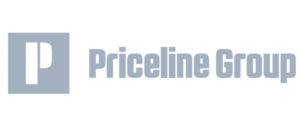
Booking.com is owned by the Priceline Group, which offers travel, restaurant reservations, and other related services. Booking.com offers hotel rooms in illegal settlements in the occupied West Bank, including Tekoa Lodge in Tekoa, Nof Canaan in Kfar Adumim, Almog Kibbutz Hotel, Kalia Kibbutz Hotel, Metsoke Dragot Hotel, Hasmonean Room Apartment in Modi’in Illit and Nofei Yarden in Mitzpe Yeriho. Danwatch contacted Priceline Group, but received no reply. Priceline Group has made no prior public statements regarding possible negative effects on human rights associated with its activities in the occupied Palestinian territories.
36. Volvo Group (SWEDEN)
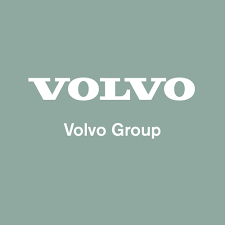
Volvo Group is a Swedish industrial conglomerate that manufactures construction equipment, trucks, buses, and marine engines. Its subsidiary Volvo Buses owns 26.5 percent of Merkavim, a company that supplies armoured buses to Egged bus lines in the occupied West Bank, where Volvo Group buses are also used for transport. Egged operates special bus lines to almost all illegal settlements, including illegal outposts. The remaining 73.4 percent of Merkavim is owned by Mayer’s Cars & Trucks, which is the sole distributor of Volvo in Israel. Two Volvo-certified garages operate in the illegal industrial zones of Mishor Adumim and Atarot in the occupied West Bank. In a 2012 report submitted to the UN General Assembly by the Special Rapporteur on the situation of human rights in the Palestinian territories, Richard Falk, Volvo Group’s business operations are mentioned among other highlighted cases. Furthermore, Volvo excavators are used by the Israeli army to demolish Palestinian houses on occupied land, as documented in February, April and October 2016 in the Palestinian villages of Jinba, Halaweh, Um Al Kher and in the Jordan Valley. Danwatch contacted Volvo Group, but received no reply. On the subject of house demolitions, Volvo Group stated in 2011 that “Volvo neither can nor wants to take a position in international conflicts […] We regret if they are used for destructive purposes, but it does not stop us from believing that our excavators and vehicles largely play a part in making the world a little better.”